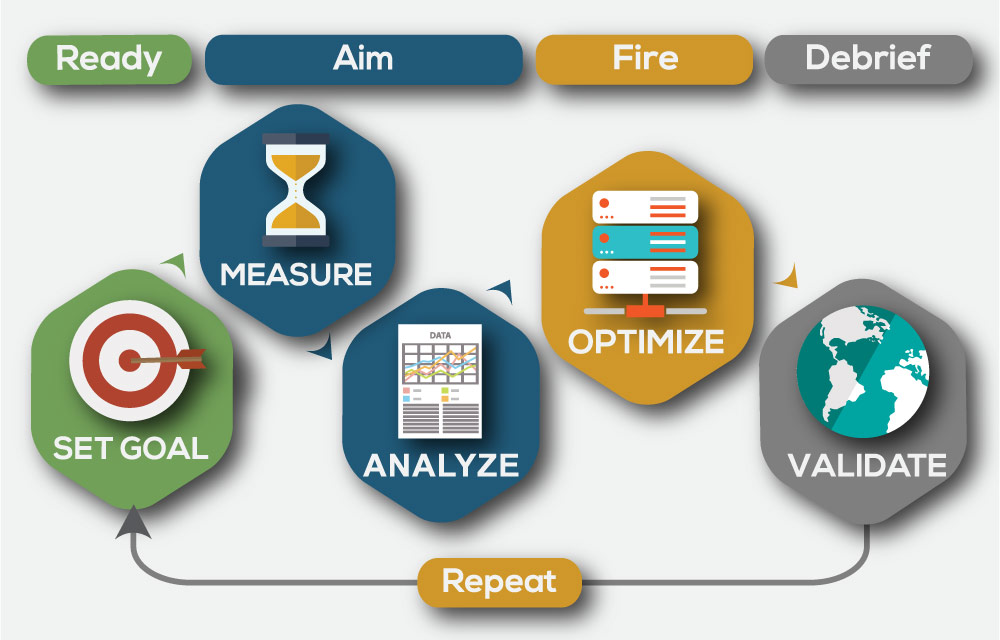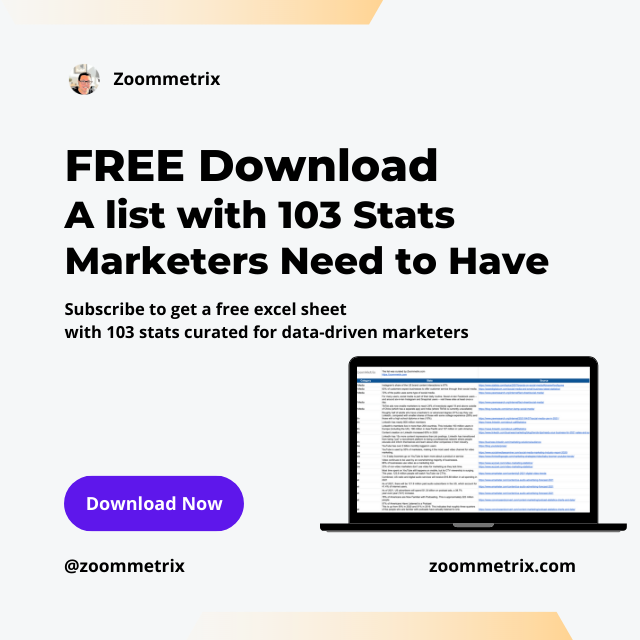
How to Select the Right Digital Marketing Analytics Tools
While a lot of us are working hard with digital marketing data to find that actionable insight, let’s not forget the importance of selecting the right digital marketing analytics tools.
I’ve talked to many people, including marketers, marketing managers, CXO, etc. Many times, I come across about the discussions around tools.
Even cases where people talk data before it is even collected. This situation is what I refer to as:
Marketers firing before they aim their strategies to the target.
I come across this situation a lot from many marketers. People talk about collecting data, or even tools or data vendors to purchase too many times. Even blaming the tools for lack of data discipline.
It is very important to really start the planning, and define your business’s objectives and goals. So that you have a clear guidance on what tools you need to solve your digital marketing problem.s
Maybe even before that, you have company’s vision and mission, that many employees are trying to contribute towards. Let’s make sure to recognize all of that.
In marketing, you have to have a plan and a goal. As you may know, Google Analytics and many other tools do well in providing click, event, traffic data on digital properties, but it is not until someone makes sense of it to bother digging deeper into it to find those “insights”.
This is why I like to refer to this process that I use to frequently approach optimizing the digital experience and run much more a/b tests while transforming the team into a data driven organization.

Just as if you’d ask a professional photographer, “what camera are you using to take that nice photo?” What about his/her skills?!.
In a digital data world, I hear marketers talk about tools and data collection, but not enough to the action or the strategies built around the hypothesis generated from the analytics.
Something is really missing here. Sorry, data is not going to solve problems, it is you or the people who need to solve the problem will. With a massive amount of marketing technologies out there, marketers are saying that they’re not getting the full benefits of the data.
By the way, I’m not making this up. According to Econsultancy’s survey on marketer’s top data challenge shows, the key theme is turning data into actionable insights.

I’m glad, happy, and proud to say that I have had excellent leaders who managed me, and it is such a blessing to have their guidance.
When I moved from Japan to California in 2006, I knew data landscape was changing and disruption was happening in the marketing space with the internet.
It was going to change how marketing and eCommerce adjust the course of the business, just like how traditional business analytics have done for businesses.
While data have become widely available and accessible, it has given a more fuzzy feel for marketers that they can wear multiple hats to do everything including (not limited to) sales, A/B testing, analytics, data management, media buying, etc. This is dangerous. When resources and expertises spread thin, especially while the direction is not clear, data is pretty meaningless.
Brainstorming and data discoveries are fun exercises. Yes, it is fun, but at the end of the day, we’ve all got jobs to help business perform. So at some point you really have to select the critical few must have data points that differentiate ‘great’ from ‘good’ to know data.
So, the tools and data, all of that good stuff should come from good planning and requirements,
I wrote this in my previous blog post “Converting Customer Behavior to Business”, but a lot of people follow the process of “Fire -> Aim”.
Instead of “Ready -> Aim -> Fire -> Debrief”. So if you really want to focus on the data, tools, that will bring insights to help your business perform, you have to know what you’re measuring for.
People need to understand what is the problem we’re trying to solve for the business.
One manager has mentioned to me (not in exact words..) “People working within constraints, even that means working very few resources, budget, or tools, people actually can learn quickly about what is missing and required to drive performance”.
That meant to me it is, there are very important critical few that you should be focused on and solve that problem. Same goes with digital marketing analytics tools selection.
My basic suggestion that I recommend approaching selecting tool is following these steps:
- Map and understand your business model. How is your customer is going to engage with your business?
- Design your marketing funnel
- Select your marketing technology tools
For #3, I would look into the solutions around:
- Quantitative data
- Qualitative data
- A/B testing
- Capture, manage, known user information (CRM or Email Service Provider)
- Data Manager (e.g. Tag Manager, automation tools, productivity tools)
These are super key to start with.
That is because when you have constraints you have to focus on the critical few to act quick and deliver results while really feeling the exposed pain points. No fancy big data stuff here.
Quantitative Data
You want basic analytics around measuring your funnel. Conversion rate, revenue, traffic, AOV, engagements, etc.
Qualitative Data
Quantitative by itself does not give you all the insights, you have to listen to your customers and have the capabilities to track and gain feedback from your customers.
A/B testing
Doesn’t have to be a tool, but idea is to track and use your analytics tools to measure your tests so that you can iterate on changes to improve your business performance.
User Information (CRM)
You need to be able to understand your customer by their name, email, address, profile, etc. Typical web analytics tools aren’t designed to help you manage your customer data. So you’ll need a tool to help you manage that.
Data Manager // Productivity Tools
Tools acting in silos aren’t very helpful. There are tools out there that will help you track, scale your resource by automating many tasks you could be avoiding. Like tag manager, automation tools like IFTTT or Zapier.
Only with many options, time, budget, and all that happy stuff, people will tend to lose sight, explore, and wonder off from the core problems.
To me, that made a lot of sense. In fact, I had to go through painful business transitions during the bad market conditions. Learned that focusing on the critical few helps you find the important things to work on and fix fast.
And when you have few goals with a very high bar to hit, then it creates a sense of urgency. Stressful, but a good one. And it helps you prioritize and be selective about the tools you’ll need to solve the problem.
I think this is why Growth Hacking mindset is really interesting as fundamentally you’re collaborating with peers under the constraints of resources or budget. Then you really have to grow and perform, otherwise, startup’s fund goes dry.
So you end up picking that one or two KPI, putting heads down and optimize the crap out of it by looking at the important things that matter to gain insights, to then act on it.
Here is a great article about consumer insights on Huffington post “What Are Consumer Insights and How Do They Impact Marketing Effectiveness”. Article’s concept shows that it’s key to getting insights out of data, because a lot of time when analyzing data in web analytics tools, performing A/B testing reading the results, we as analysts are trying to find that story, and the “why” factors on why things have turned out a certain way.
Point is, consumer insights, having that mindset to think like a customer is important, so you’re not just saying things like “traffic is up because we spend more money on Google’ Paid Search Ads”. So go beyond measuring traffic and conversion rate.
My favorite line of text from that article.
“Consumer insights provide understanding that leads to marketing on a more direct and personal level.”
We’re all obsessed with data and tools, but let’s really try to focus on the “why” factor and follow a process that makes sense.
See if that helps you set the right expectations and be part of the fun journey in finding that “insights”, and add awesome tools to your portfolio of capabilities after understanding what it takes to solve your business problems.
Thank you so much for taking the time to read my content. If you've liked what I've had to say please subscribe!

ZoomMetrix Newsletter
Join the newsletter to receive the latest updates in your inbox.